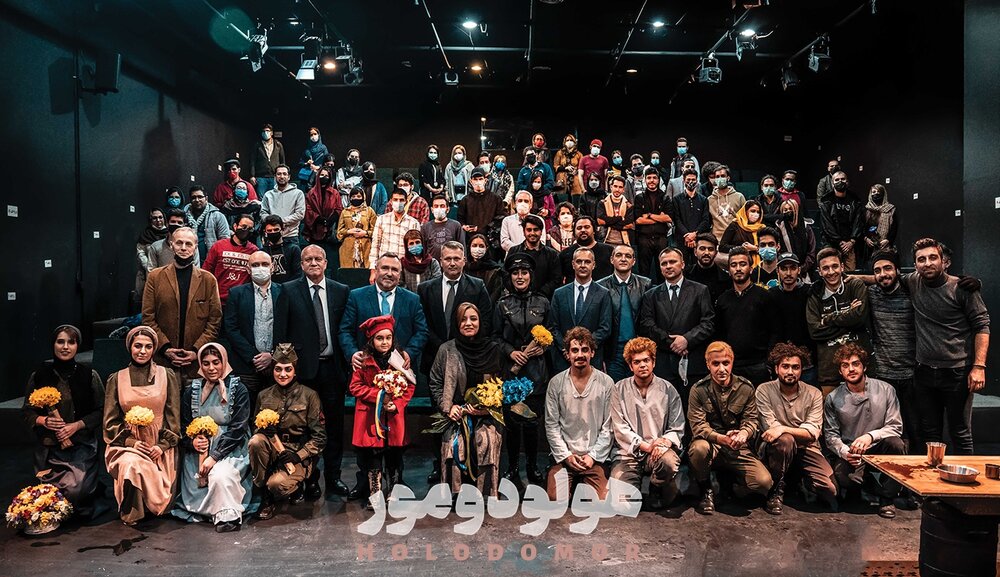Ukrainian envoy invites Iranian troupe to perform “Holodomor” in Kiev

TEHRAN – Serhii Burdyliak, Ukraine’s ambassador to Iran, has invited Iran’s Seganeh Troupe to perform their play “Holodomor” in the Ukrainian capital of Kiev.
Burdyliak and a number of his colleagues were at Tehran’s Neauphle-le-Chateau Theater on Friday to watch a performance of the play, which recapitulates the Holodomor, a famine planned by Joseph Stalin in Soviet Ukraine from 1932 to 1933 that killed millions of Ukrainians.
Raha Hajizeinal is the director of the play written by Ali Safari.
Burdyliak said that he would like to host the troupe in his country and help stage the play in capital Kiev if the Coronavirus restrictions permit, a public relations team of the Seganeh Troupe announced in a press release on Saturday.
He added that he wants the troupe to gain more information about the Holodomor, especially the writer and director, and to have the opportunity to visit the National Museum of the Holodomor-Genocide in Kiev where they can gain more information and give a much stronger performance in Kiev.
The ambassador also said that he will write a letter to the Ministry of Foreign Affairs of Ukraine to provide the facilities for the troupe to visit Ukraine for their performances.
Writer Safari said that writing about Holodomor is very complicated and sensitive, and that he spent two years collecting information on writing the play.
Safari also said that the visit to Ukraine will help them to feel the events more strongly, and added, “We have also been through the war and are well aware of the bitter consequences of the war. I am sure after the visit to Ukraine, we can give a better and much stronger performance.”
Director Hajizeinal also said that the troupe is composed of young actors who have collaborated in the project will all their passion.
This play is the final part of a trilogy, which has been produced by Safari and Hajizeinal about World War II. “Women’s Auschwitz” and “Berlin 10:10” were other parts of the set, which were performed in 2019 and 2020.
The word Holodomor literally translated from Ukrainian means “killing by starvation”. The term Holodomor emphasizes the famine’s man-made and intentional aspects such as rejection of outside aid, confiscation of all household foodstuffs and restriction of population movement.
As part of the wider Soviet famine of 1932–33, which affected the major grain-producing areas of the country, millions of inhabitants of Ukraine, the majority of whom were ethnic Ukrainians, died of starvation in a peacetime catastrophe unprecedented in history of Ukraine.
Since 2006, the Holodomor has been recognized by Ukraine and 15 other countries as a genocide of the Ukrainian people carried out by the Soviet government.
Some scholars believe that the famine was planned by Joseph Stalin to eliminate a Ukrainian independence movement.
A cast composed of Sarina Azad-Milani, Farshad Ayyubi, Mohammad Pasandideh, Tima Taqizadeh, Farzaneh Seiri, Ahu Shafiei, Milad Salehvand, Mehdi Abbasi, Nika Qasemi, Atefeh Musavi and Alireza Valipur perform the play, which will remain on stage until March 12.
Photo: Ukrainian Ambassador Serhii Burdyliak and his colleagues pose for a photo with the Seganeh Troupe after the performance of “Holodomor” at Tehran’s Neauphle-le-Chateau Theater on March 5, 2021.
RM/MMS/YAW
Leave a Comment